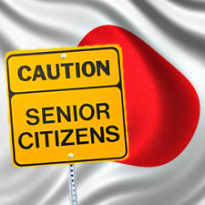 On Thursday, two US senators asked Attorney General Eric Holder to clarify the Department of Justice’s definition of bribing a foreign official. Sens. Chris Coons (D-DE) and Amy Klobuchar (D-MN) believe that a lack of clarity in the Foreign Corrupt Practices Act (FCPA) has pushed US businesses to devote a “disproportionate amount of resources” to ensuring compliance. The senators – both of whom sit on the Senate Committee on the Judiciary – have previously raised FCPA issues, but the DOJ’s dramatic pre-Chrstmas Wire Act about face may have convinced them that Holder is a slot machine that’s paying off, and they want to be the ones to take the next spin.
On Thursday, two US senators asked Attorney General Eric Holder to clarify the Department of Justice’s definition of bribing a foreign official. Sens. Chris Coons (D-DE) and Amy Klobuchar (D-MN) believe that a lack of clarity in the Foreign Corrupt Practices Act (FCPA) has pushed US businesses to devote a “disproportionate amount of resources” to ensuring compliance. The senators – both of whom sit on the Senate Committee on the Judiciary – have previously raised FCPA issues, but the DOJ’s dramatic pre-Chrstmas Wire Act about face may have convinced them that Holder is a slot machine that’s paying off, and they want to be the ones to take the next spin.
The letter comes less than a week after the Securities and Exchange Commission announced its intention to shine a flashlight on Wynn Resorts’ $135m donation to a Macau university. That’s the second such investigation into a Nevada casino company’s Asian operations; Las Vegas Sands’ dealings with Macau officials and junket operators came under similar scrutiny early in 2011. Interesting symmetry: both investigations stem in part from civil lawsuits filed by (respectively) Kazuo Okada, Wynn shareholder number one, and Steve Jacobs, former Sands China CEO. Also, both companies being investigated are headed by two outspoken and pugnacious Republicans who have not shown the greatest affection for the current Democratic president. Coincidence or karma?
With the SEC on the warpath, both Sands and Wynn will be on their best behavior in their quest to pop Japan’s casino cherry. Gambling Compliance quoted Sakihito Ozawa – member of the ruling Democratic Party of Japan (DPJ) and a key figure in the push for casino legislation – as saying he hopes to submit a bill to parliament in April. Ozawa and 10 other pro-casino parliamentarians are currently making the rounds of Japan’s other main political parties, trying to ease concerns expressed by some of the less gung-ho members. The International Casino Institute’s Takashi Kiso cited the April lull in parliamentary activity as a good time to submit draft legislation.
Like Singapore, Japan’s casino plan revolves around attracting an international clientele. Japan’s population dwarfs that of Singapore, but Japan is currently shrinking by a million people a year. Last month, the country’s Health and Welfare Ministry estimated that by 2060, Japan’s population will have shrunk by a third to 87m; 40% of those will be over the age of 65. Awareness of the stress this will place on the country’s social safety net virtually guarantees Japan’s politicians will approve revenue-generating casino legislation without too much delay.
Ironically, while some parliamentarians are fretting about the potential for criminality to accompany the introduction of casinos, the demographic shift in the population may be of far greater concern than the yakuza. Crime stats from a few years back showed that the number of Japanese citizens over the age of 70 charged with a crime had tripled over a seven-year period. (And it ain’t just shoplifting: assaults rose 17-fold in the same span.) Even more alarming, the senior citizen crime rate was 7x their demographic growth. One of this new breed of psycho seniors – a sixty-something man Kotaku.com referred to as “the old dude who apparently won’t stop robbing arcades” – has become the scourge of the country’s ubiquitous pachinko parlors. Whenever Japan’s new casinos get the nod to start operations, they better not scrimp on their security budgets.
